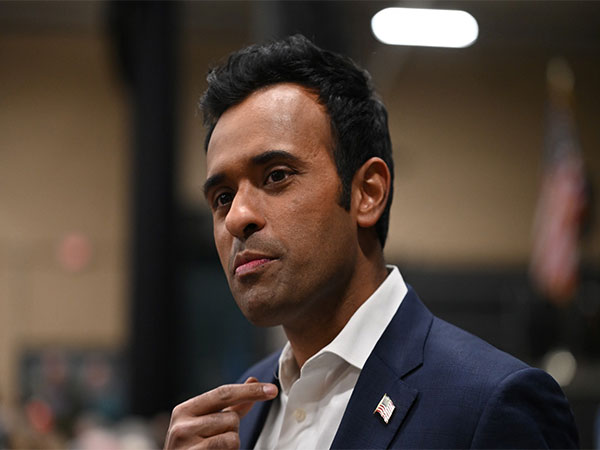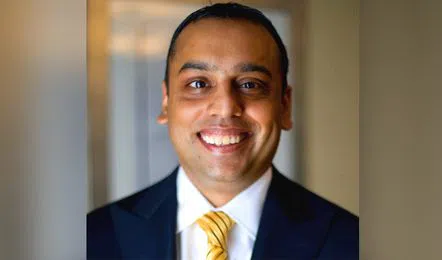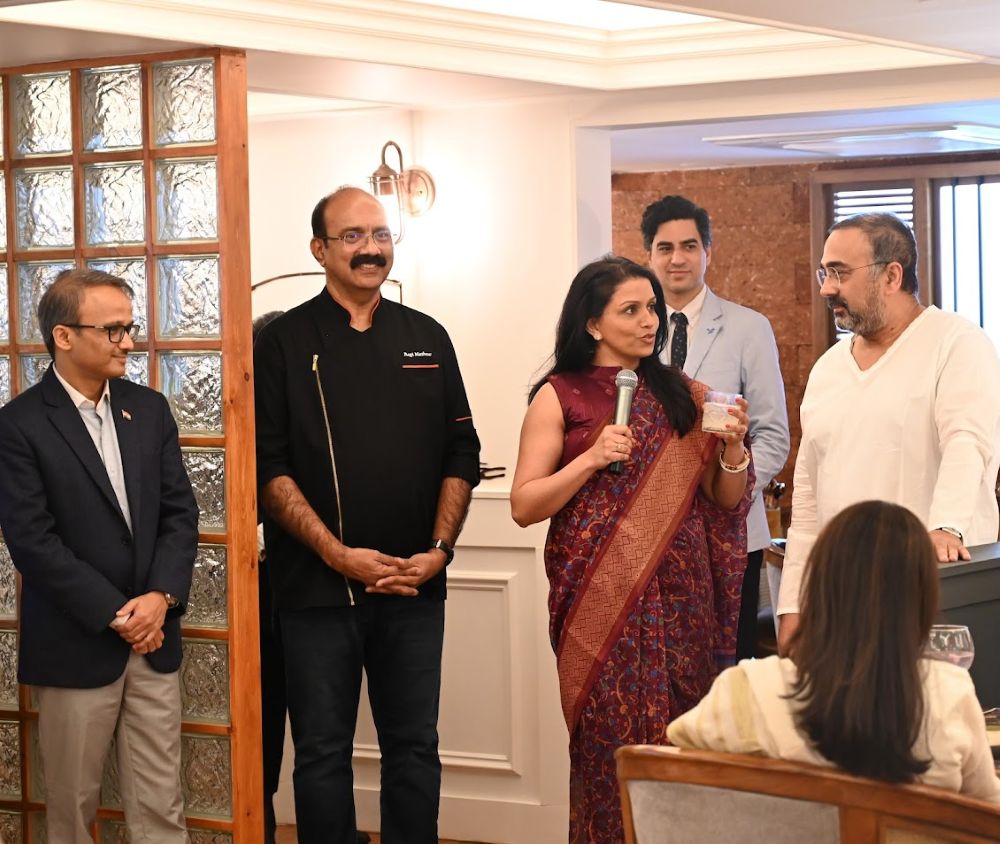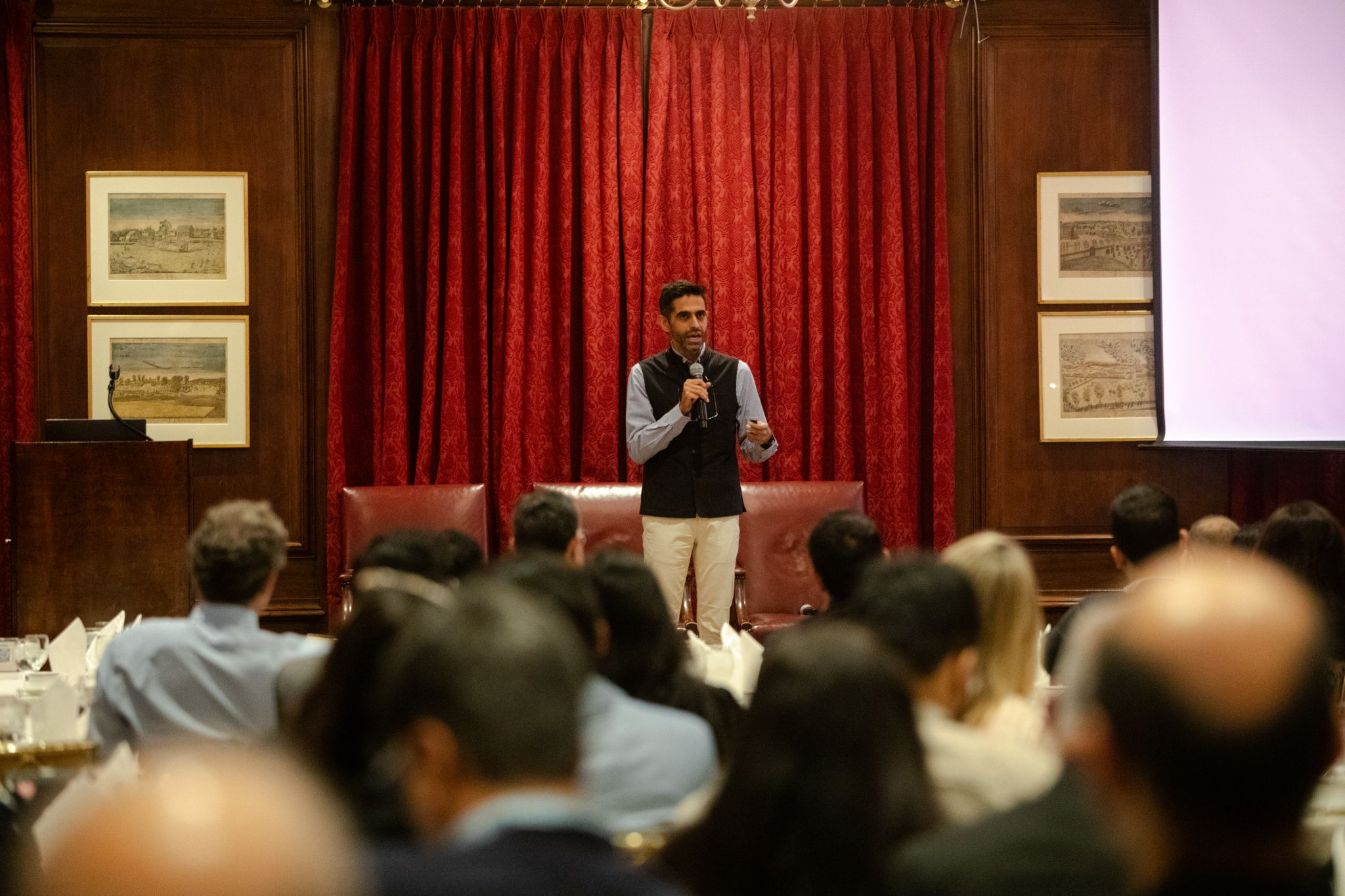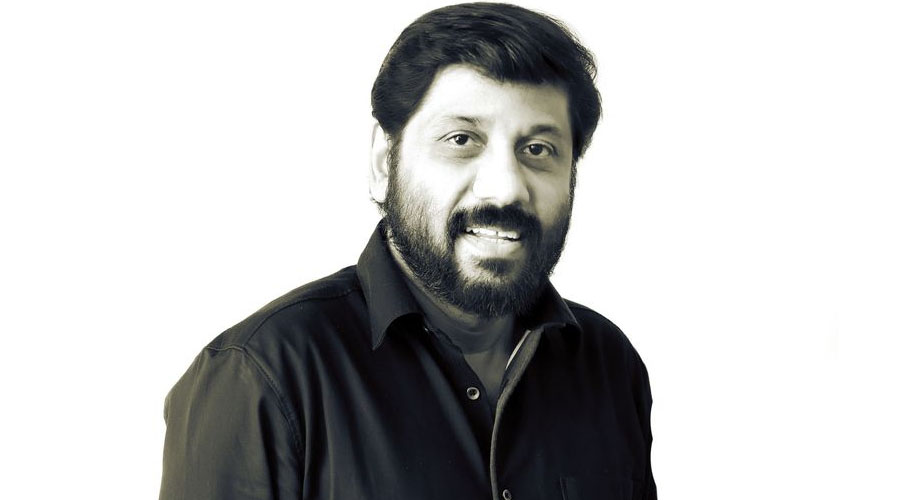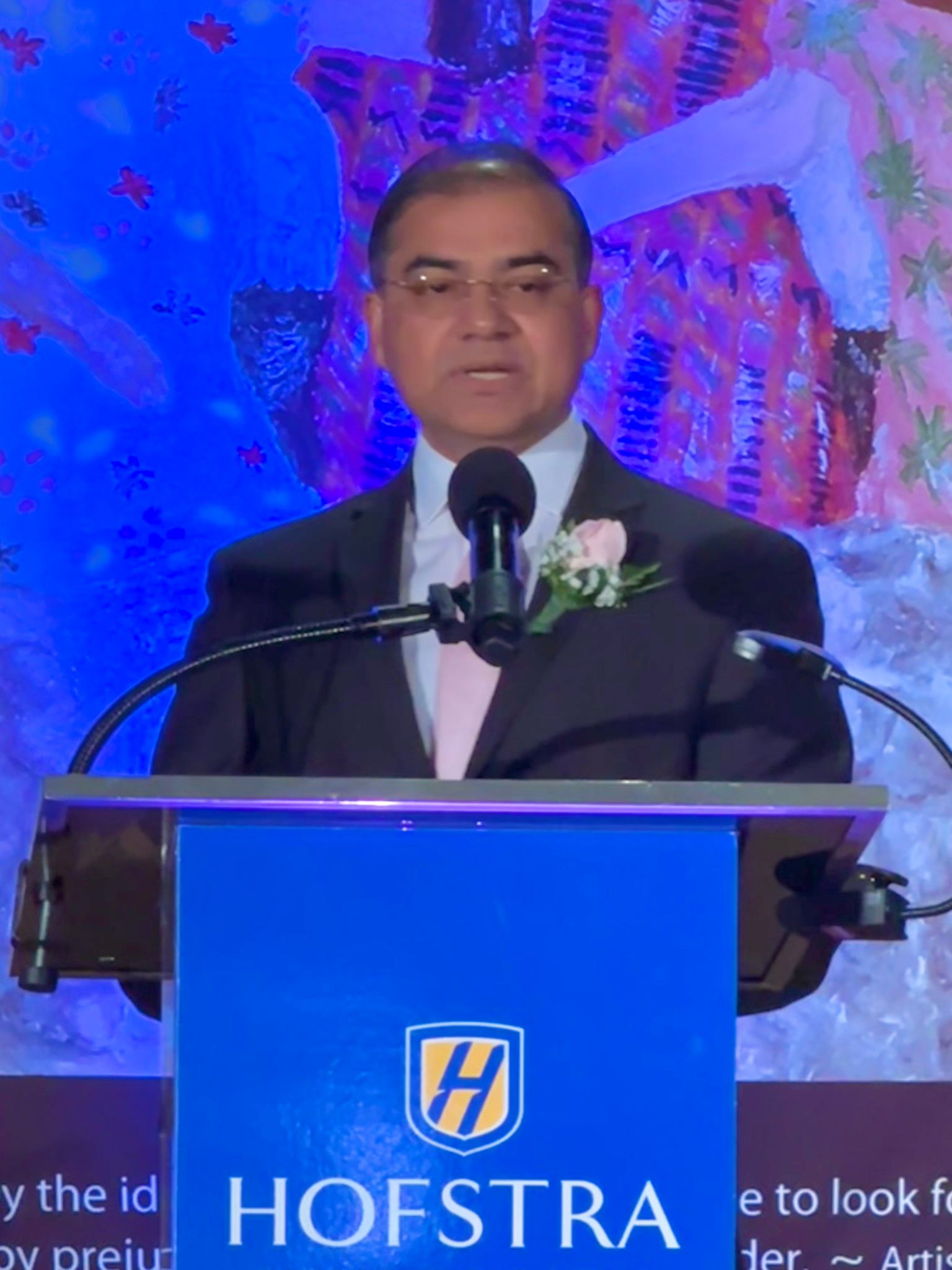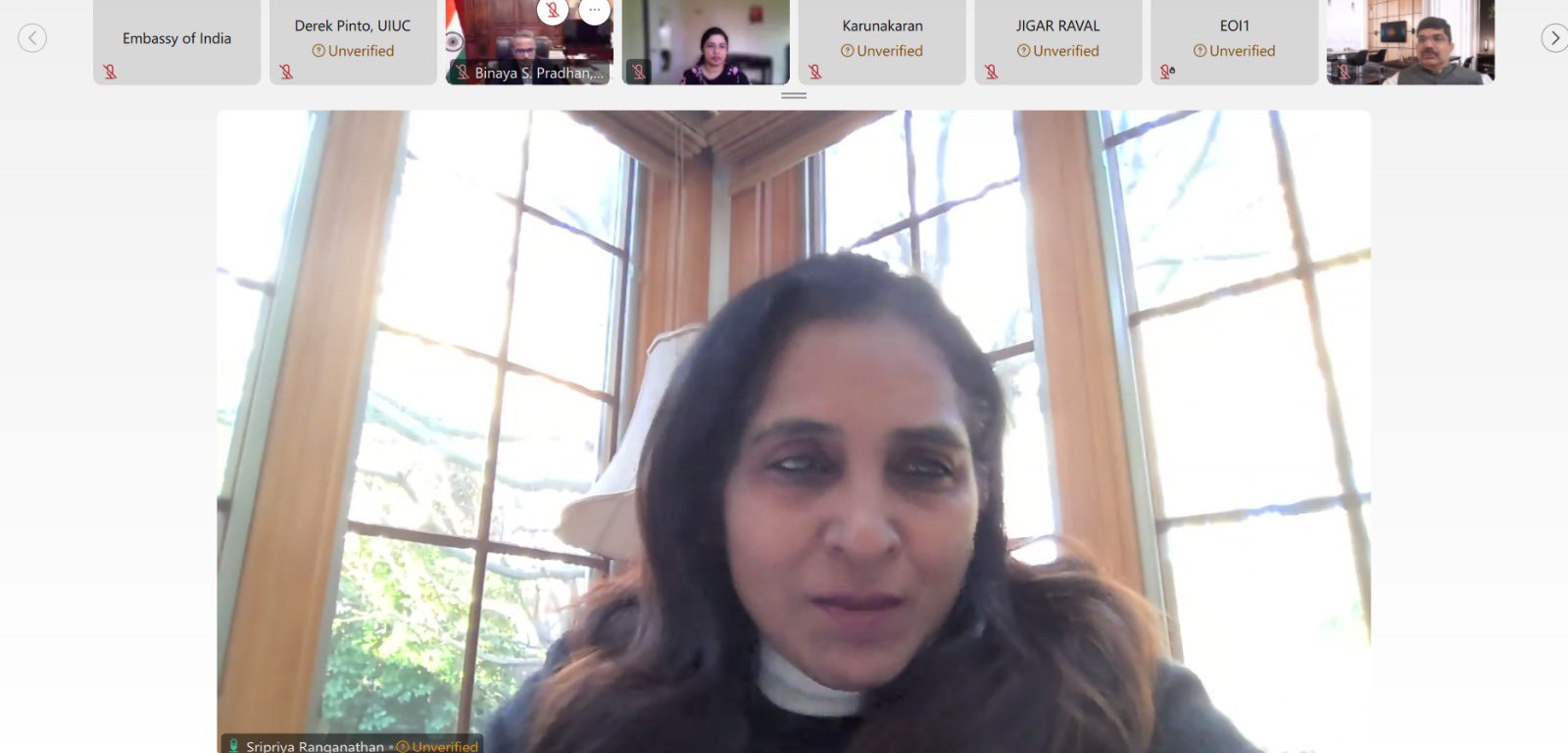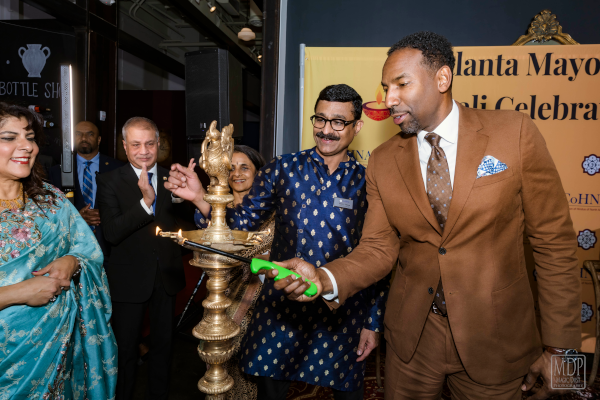The world is in transition between an order that has diminished and an order yet to take shape
Our Bureau
New York, NY
Former Indian Ambassador T.P. Sreenivasan was hosted at a dinner/talk by the Global Organization of People of Indian Origin (GOPIO) and Bharatiya Vidya Bhavan in New York City on May 18th at the Bhavan’s Romanti Auditorium in New York on May 18, 2023.. The program started with an introduction of the Bhavan by Bhavan’s Operations Manager Minesh Patel followed by remarks on the history of the Bhavan in USA by its Chairman Dr. Navin Mehta. GOPIO Chairman Dr. Thomas Abraham welcomed everyone on behalf of GOPIO and its chapters and spoke on GOPIO’s history and activities around the world. The program was streamed live for the world audience.
The houseful program was chaired and moderated by Dr. Abraham and introduced Ambassador Sreenivasan as a diplomat, TV anchor, and author of several books. He has been Ambassador to many countries. The last assignment was as Ambassador to Austria where he also served as Governor of India at the International Atomic Energy Agency (IAEA) and is currently adjunct professor of eminence at Mumbai based Somaiya Vidyavihar University, He also serves as Chairman of Academy Council and Director of NSS Academy of Civil Services.
“The world is in transition between an order that has diminished and an order yet to take shape,” said Ambassador Sreenivasan in a talk on the Emerging World Order. He said that four game changing developments in the early 21st century, 9/11, the economic meltdown, Covid 19 and the Russia Ukraine had impacted all aspects of human activity and left the world in disarray.

“The foundations of the post-Second World War have been demolished, but the shape of a new order is still not in view,’ Sreenivasan said.
Sreenivasan shared his perspective on the current state of the world. One thing recognized in the world is that we are in a phase of transition, because there are so many points and many have talked about change.
Sreenivasan said “Change is order of life, it can happen, it continues to happen all the time, but we must remember that we are in a particularly critical phase in the world today because of certain developments in the 21st century. In fact, if we take the years from 2000 to 2020, you can see that there have been very dreadful events, game-changing events which have taken place; we have been through it with difficulty. But the important thing is that these have not changed. We are still in the grip of the events that took place in the 21st century.”
He said that the 9/11 attacks demonstrated the limitations of even the most powerful nations in the face of determined individuals or groups. He said, “We think 9/11 is behind us, there is a new building to commemorate it as a museum. But it has not left us. Because what was the fundamental lesson that we learned that whatever may be the power of a country, however much of a capacity it has to destroy the world, the United States has the capacity to destroy the world 55 times, I don’t know why you need that kind of capacity. But even that kind of power has no relevance in the face of determined people,” said Sreenivasan.
Terrorism has become a major concern, and efforts to define and address it at the international level have been complex and ongoing. The second is the economic meltdown, which affected the world in various ways, highlighting the interconnectedness and interdependence of economies. Sreenivasan added, “We do not know which one is prominent, but both are problematic. Efforts have been made to address economic issues, but political considerations have often taken precedence, leading to a shift in the balance between economic and political concerns.”. The question he quoted at the end was, “What did the United Nations do? What did the international community do?”, to which he answered, “People solve their problems themselves, but the “United Dealing” with these kinds of issues, is now taking place in the world.”
Covid-19 exposed vulnerabilities in global governance and cooperation. The United Nations Security Council, responsible for dealing with threats to international peace and security, faced challenges in responding effectively due to political tensions and disagreements. The pandemic also revealed disparities in global healthcare systems and the need for international collaboration in addressing such crises. And then the fourth, the most unexpected invasion of Ukraine by Russia raised concerns about international norms and the behavior of powerful nations. The complex dynamics involving Russia, Ukraine, and other global powers have created uncertainty about the future trajectory of international relations. He spoke about the relations between the Indian and Russian governments. Quoted a few examples to make the audience understand the depths of India-Russia ties.
He also talked about the changing nature of the world order. He mentioned, “It is very clear that we are not in the same world as we were at the end of 2000. And how are we going to deal with it? What is it going to be something that nobody can predict? We know the trends, but exactly where our world will go, we have to now look for it.”. He continued, “So, what exactly is the nature of the world today?” the answer to which he analyzed, “When there was a world order when we talk about world order, we are not talking about equal or even equitable world order. There cannot be a world order in which everybody is equal. That is impossible. It has never happened. And nobody has tried it. But what did the United Nations do? What the United Nations did was to establish standards of behavior by nations. Whether you followed it or not. The United Nations sat down, and from the colonization, up to the other pandemics not really the COVID-19, but every human rights situation, environmental situation everywhere, standards have been established. And the effort was to keep those standards alive.”
Bhavan’s Chairman Emeritus H.R. Shah concluded the event with a tribute to Bhavan’s early supporter billionaire and philanthropist S.P Hinduja, who passed away a couple of days earlier. GOPIO International President Lal Motwani presented Ambassador Sreenivasan a memento of a collector’s item of the First Day Cover brought out by the US Postal Service at the First Global Convention of People of Indian Origin in 1989. The program ended with a vote of thanks by GOPIO-New York President Beena Kothari followed by a wholesome vegetarian dinner.
GOPIO is a non-partisan, not-for-profit, secular organization with Individual Life Members and over 100 chapters in 35 countries. GOPIO’s volunteers are committed to enhancing cooperation and communication between NRIs/PIOs and the local communities, building networks, bonds, friendships, alliances, and the camaraderie of citizens and colleagues alike. GOPIO volunteers believe that when they help network the global Indian community, they facilitate making tomorrow a better world for the Indian Diaspora and the countries they live in.

















